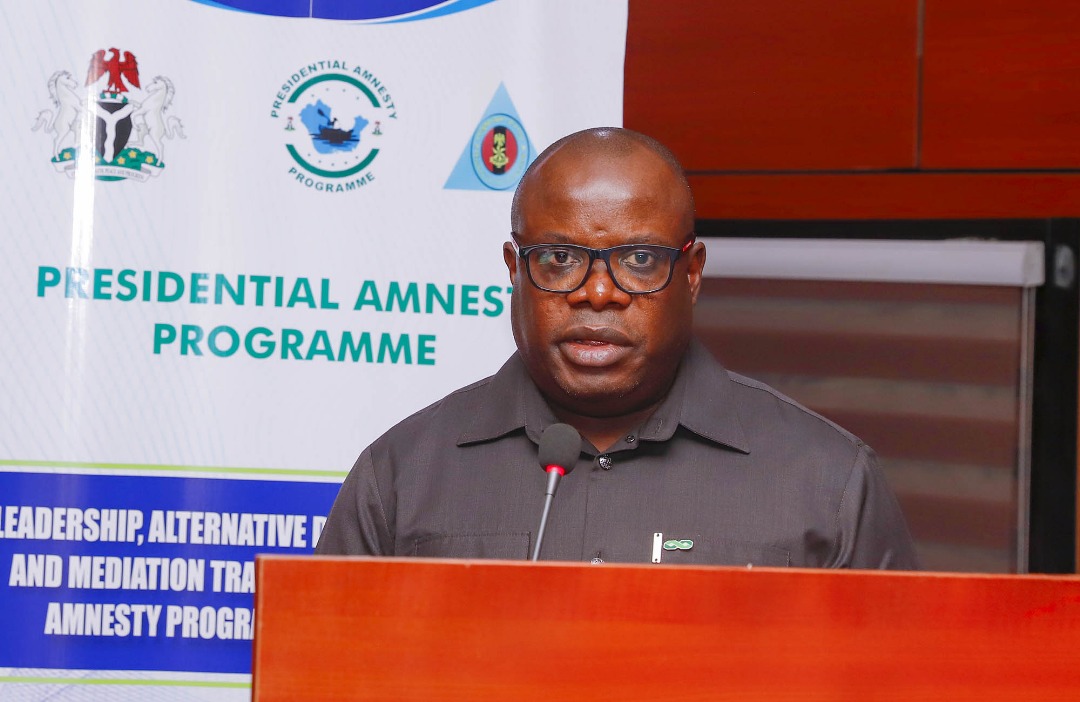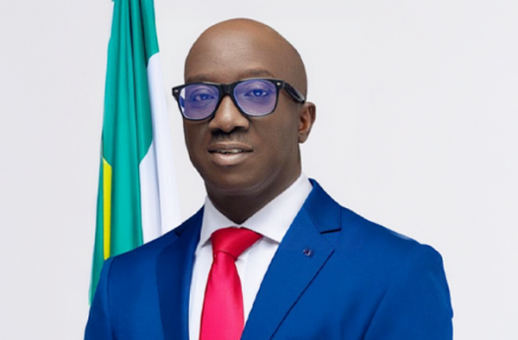News
Doctors To Decide On Nationwide Strike Today

The Nigerian Association of Resident Doctors will today (Wednesday) hold its National Executive Council meeting to determine its next line of action on a pending ultimatum to the Federal Government.
The association had earlier issued a 10-day ultimatum to relevant government agencies, warning that members would embark on a nationwide strike if their demands were not met.
The threat comes amid mounting pressure on Nigeria’s fragile public health system, which is already grappling with a shortage of doctors, poor infrastructure, and overcrowded hospitals.
Resident doctors, who constitute the majority of the medical workforce in teaching and specialist hospitals, have repeatedly gone on strike in recent years over unpaid wages, poor welfare, and inadequate working conditions.
READ ALSO:JUST IN: Doctors Issue 10-day Ultimatum, Threaten Strike
Experts warn that another shutdown could cripple healthcare delivery, forcing patients to seek expensive private care and worsening health outcomes nationwide.
In a communiqué issued on September 1, 2025, and signed by NARD President, Dr. Tope Osundara; General Secretary, Dr. Oluwasola Odunbaku; and Publicity and Social Secretary, Dr. Omoha Amobi, the doctors demanded immediate payment of the outstanding 2025 Medical Residency Training Fund, settlement of five months’ arrears from the 25–35 per cent Consolidated Medical Salary Structure review, and other long-standing salary backlogs.
They also demanded the payment of the 2024 accoutrement allowance arrears, prompt disbursement of specialist allowances, and restoration of the recognition of the West African postgraduate membership certificates.
In addition, they called on the National Postgraduate Medical College of Nigeria to issue membership certificates to all deserving candidates, implement the 2024 CONMESS, resolve outstanding welfare issues in Kaduna State, and address the plight of resident doctors at LAUTECH Teaching Hospital, Ogbomoso.
READ ALSO:JUST IN: FCT Resident Doctors Begin Seven-day Warning Strike
Speaking with The PUNCH on Tuesday, Dr. Osundara said the outcome of today’s NEC meeting would determine the association’s next step.
“We are holding our NEC meeting tomorrow (today), and the outcome will determine our next line of action. At the meeting, we will review whether the government has made any meaningful progress on addressing our demands. If there is a positive response, it will guide our decision, but if not, the council will take a firm stance on the next steps, including the possibility of industrial action,” he said.
NARD First Vice-President, Dr. Tajudeen Abdulrauf, also confirmed that the NEC would reconvene today to assess the situation.
“The outcome of the meeting will depend on the government’s response to our demands. If they are not addressed, we cannot guarantee industrial harmony, and a strike remains likely. Remember, we gave a three-week ultimatum in July and extended it. In the spirit of dialogue, the NEC mandated the National Officers’ Committee to engage stakeholders for another three weeks, yet nothing has been done. When we meet tomorrow, we will review the government’s response and decide on the next line of action,” Abdulrauf said.
News
Christmas: Otuaro Preaches Peace, Unity In N’Delta, Hails Tinubu’s Support For PAP

The Administrator of the Presidential Amnesty Programme (PAP), Dr Dennis Otuaro, has extended warm Christmas greetings to the people of the Niger Delta, calling for renewed commitment to peace, unity and communal harmony as the region prepares to enter the New Year.
Otuaro, in a message issued by his Special Assistant on Media, Mr Igoniko Oduma, thanked stakeholders, traditional rulers, ex-agitators, youths and communities across the Niger Delta for their sustained support for the PAP and for the administration of President Bola Ahmed Tinubu.
He described peace and unity as the bedrock upon which sustainable development in the Niger Delta must continue to be built, urging the people to remain steadfast in protecting the hard-earned stability currently enjoyed in the region.
“Peace and unity remain the strongest foundations for sustainable development. As a people, we must continue to reject violence and embrace dialogue, cooperation and mutual respect as we work collectively for the progress of our region.
READ ALSO:Otuaro Tasks Media On Objective Reportage
“I also express my profound appreciation to all stakeholders and the people of our region for your sustained support for the administration of His Excellency, President Bola Ahmed Tinubu, GCFR,” he said.
Otuaro noted that the PAP recorded significant milestones in 2025, including improved welfare for beneficiaries, enhanced educational and vocational opportunities, and strengthened reintegration outcomes, all aimed at empowering Niger Delta youths to contribute meaningfully to society.
He attributed these achievements to the visionary leadership of President Tinubu and the institutional support of the Office of the National Security Adviser (ONSA), which provides strategic guidance for the effective implementation of the programme.
Reflecting on the meaning of Christmas, the PAP boss described it as a season that embodies love, sacrifice, compassion and reconciliation, values that resonate deeply with the communal culture and shared heritage of the Niger Delta people.
READ ALSO:PAP Scholarship Scheme Vehicle For Better Future For Niger Delta —Otuaro
“Christmas reminds us of the power of love, sacrifice and togetherness. These values align naturally with the communal spirit of the Niger Delta, where collective responsibility, mutual support and shared progress have always defined our identity,” he added.
He urged beneficiaries of the Programme and residents of the region to celebrate the season with moderation and a renewed sense of responsibility to their communities.
Otuaro wished the people of the Niger Delta a Merry Christmas and expressed optimism that the New Year would usher in greater opportunities, peace and prosperity for the region and the nation at large.
“As we step into the New Year, I am confident that with continued unity, peace and collaboration, the Niger Delta will record even greater progress. I wish our people a Merry Christmas and a Happy, Prosperous New Year,” the PAP Administrator stated.
.
News
Okpebholo Slams ₦25bn Libel Suit On Edo PDP Chairman

Governor Monday Okpebholo of Edo State has given Dr. Anthony Aziegbemi, a seven-day ultimatum to pay ₦25 billion in damages over alleged defamatory statements.
In a letter by the governor’s counsel, Ray Okezie, and addressed to Aziegbemi, the PDP State Chairmen was also requested to publish a public apology in three national dailies over the alleged defamatory statements.
Aziegbemi was said to have allegedly accused the governor of using thugs and non-state actors to carry out official duties.
READ ALSO:Okpebholo Sympathises With Otaru, People of Auchi Over Tragic Tanker Fire Incident
“In the letter dated December 22, 2025, and titled ‘Demand for Damages and Apologies for Defamation of the Character of the Executive Governor of Edo State, Senator Monday Okpebholo,’ the PDP Chairman was said to have in a press statement of December 7, 2025 portrayed Okpebholo as an unintelligent, dishonest, and, lawless person.
“Accordingly, we have the instructions of our client to demand from you the sum of N25, 000,000,000.00 (Twenty Five Billion Naira only) being compensation for the damage you have inflicted on his reputation through your said press release.
“The above stated sum must get to our client within seven (7) clear days from the date of this letter. In addition, you are required within seven (7) days to publish a retraction of the said press release in three (3) National Newspapers which must include the Guardian and the Vanguard newspapers,” the letter partly reads.
The governor’s counsel threatened to proceed on legal action in any Nigerian court should the PDP State Chairman fail to comply with the demands
News
YULETIDE: UBTH CMD Charges Nigerians To Be Hopeful In Coming Year

The Chief Medical Director of the University of Benin Teaching Hospital (UBTH), Prof. Idia Ize-Iyamu has urged Nigerians to remain optimistic about the upcoming year, despite current challenges.
Prof. Ize-Iyamu expressed optimism that the coming year would bring improvements for everyone.
The CMD made these remarks during the Nine Lessons and Carol night /End of Year Party organized by UBTH for staff and students held in Benin.
Prof. Ize-Iyamu encouraged everyone to place their trust solely in Christ to overcome the numerous challenges facing the country.
READ ALSO:UBTH CMD Laments Inadequate Heath Workers, As Minister Promises Increased Funding
She expressed her gratitude to the hospital community for their support during her first four months in office.
Prof. Ize-Iyamu assured them that the coming years hold many opportunities and that hope in Christ would transform lives daily, just as Christ’s birth brings joy and is the reason for the season.
She also extended her appreciation to everyone in the spirit of the season.
READ ALSO:UBTH Marks 2023 World Antimicrobial Resistance Awareness Week
“I want to appreciate everyone in the spirit of the season. Our commitment to excellence and professionalism remains at UBTH.
“UBTH CARES and just like Christ cares. As we celebrate Christ and the season. Let’s hope on him. When you have Christ, you have hope.We are hopeful that the coming year will be better as a people and institution,” Ize-Iyamu said.
The ceremony’s highlight featured a visit to the hospital wards where the CMD distributed gifts to patients and newborns, with management, staff, and students in attendance.

 News3 days ago
News3 days agoPHOTOS: New Era In Furupagha-Ebijaw As Okpururu 1 Receives Staff Of Office

 News2 days ago
News2 days agoUBTH CMD Marks 120 Days In Office, Expresses Commitment To Providing Conducive Working Environment

 News3 days ago
News3 days agoFG Declares Public Holidays For Christmas, New Year Celebrations

 News3 days ago
News3 days agoFIRS Confirms NIN As Tax ID

 News3 days ago
News3 days agoOPINION: Gumi And His Terrorists

 News3 days ago
News3 days agoOPINION: Christmas And A Motherless Child

 News3 days ago
News3 days agoOPINION: My Man Of The Season

 Metro2 days ago
Metro2 days agoFintiri Pardons Man Sentenced To Death For ‘Killing Herdsman In Self-defence’, Others

 News3 days ago
News3 days agoKWAM 1 Withdraws From Awujale Race, Ends Court Challenge

 Metro2 days ago
Metro2 days agoPetrol Tanker Crashes Into Akpabio’s Convoy, Kills Police Dispatch Rider


























